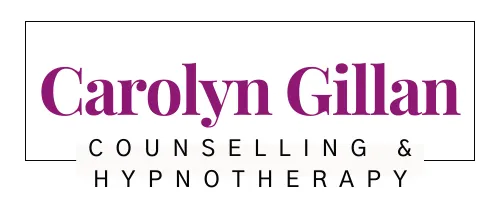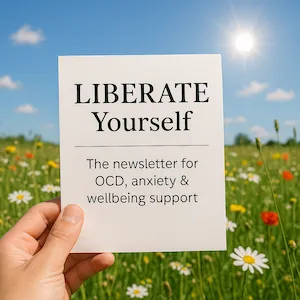
Counselling and hypnotherapy for obsessive compulsive disorder (OCD)
As a counsellor and hypnotherapist based in Plymouth, I specialise in Obsessive Compulsive Disorder (OCD) and anxiety. Since working with my first client with OCD in 2008, I’ve helped hundreds of people overcome the challenges these conditions bring. It’s incredibly rewarding to witness individuals turn their lives around — regaining a sense of calm, confidence, and control, and reconnecting with what truly matters to them.
I use the LIBERATE Approach — a compassionate, structured framework that supports lasting change. With my support, I'll help you:
Learn about OCD, including the neuroscience behind it, so you can understand how it operates
Identify your personal OCD patterns, triggers, and compulsions
Be Kind: build self-compassion to reduce self-criticism and shame
Exposure Response Prevention (ERP): Use ERP to face fears and reduce rituals in a manageable, supported way
Resilience: develop the strength to face the challenge of OCD and not be put off by uncertainties and setbacks
Accept and Allow thoughts to come and go without responding compulsively
Trust Yourself again and build confidence in your own judgment
Engage more fully in life, beyond OCD
This tailored approach helps reduce the distress around obsessions and encourages new, healthier ways to respond — putting you back in charge.
What is Obsessive Compulsive Disorder or OCD?
Obsessions are relentless, intrusive, unwanted thoughts, images, sensations or urges that cause distress or anxiety. Compulsions are repetitive behaviours or rituals that are repeated over and over again in an attempt to gain certainty, ward off threat or danger, and calm feelings of anxiety and fear caused by the obsession.
Obsessive Compulsive Disorder, or OCD as it is widely known, is an anxiety disorder that can show up in many different ways. OCD commonly manifests in one or more of these main types.
Worries About Contamination
You might feel anxious about germs, dirt, illness, or harmful substances.
Examples: You might worry about catching something or spreading it to others. This fear might lead to compulsive handwashing or showering, excessive cleaning or avoiding certain household chemicals.
Fear of Causing Harm
You might worry that you could hurt someone or make a terrible mistake, even though you don’t want to.
Examples: This might involve checking things over and over again, such as making sure the oven is off or the doors are locked. Or mentally reviewing what you did to make sure nothing bad happened.
Upsetting Thoughts or Images
You might get intrusive thoughts that feel wrong or go against your values. These might include thoughts about violence, sex or religion.
Examples: You might fear harming someone, saying something offensive or behaving in a sexually inappropriate way. These thoughts are so distressing that you might try to push them away, avoid certain objects, places or people, or seek reassurance.
Needing Things to Feel “Just Right”
You might feel uncomfortable if things aren’t in the right order, balanced, or done in a certain way.
Examples: You might find yourself repeating actions, counting, arranging, or doing things until they feel okay.
Fear of Being Responsible or a Bad Person
You might feel a heavy sense of responsibility for preventing bad things from happening, or worry you’re a bad person.
Examples: To ease the distress, you might find yourself mentally checking your memories, confessing, avoiding situations, or going over thoughts again and again.
According to the National Institute for Health and Clinical Excellence (NICE), between 1 to 4% of the population will be affected by OCD at some time during their lifetime. NICE also report that it's not uncommon for people with obsessive compulsive disorder to also suffer from other disorders, such as anxiety, depression, ADHD, autism and eating disorders.
What are the Risk Factors for OCD?
There is some evidence that obsessive compulsive disorder may be hereditary. Someone with a parent with OCD is at increased risk. However, many people aren't able to identify any family members with the disorder.
Pregnant and new mothers are more likely to experience OCD than the general population. This usually takes the form of obsessions and compulsions relating to fear of harming or abusing the baby.
Whilst, stress commonly heightens obsessive compulsive disorder, it doesn't cause it.
What's Going on in the Brain with OCD?
OCD isn’t your fault. It’s not a sign of weakness or a personality flaw — it’s a condition linked to how certain parts of the brain communicate.
Researchers have found that a particular brain circuit works differently in people with OCD. It’s called the “worry loop”(the science name is the cortico-striato-thalamo-cortical loop, but we don’t need to remember that!).
The Worry Loop Explained
You can think of the OCD brain as a stuck alarm system:
The brain notices a thought (like “Did I lock the door?”)
It can’t let go of it, even if you know it doesn’t make sense
It sends it round and round in a loop, making the thought feel urgent and uncomfortable
To try and feel better, you might do something to check or fix it (like checking the door again or repeating a phrase in your head)
Why the Loop Gets Stuck
The part of the brain that’s meant to say “It’s fine, you can move on now” isn’t working so well
At the same time, the part that sends warnings is turned up too high
This combination makes small worries feel really big, and it’s hard to stop the cycle
What Else is Involved?
A brain chemical called glutamate, which helps messages travel in the brain, might be too active in people with OCD — like having too much electricity in the system
Another network called the default mode network (which is active when we’re thinking inwardly or daydreaming) may also be on overdrive, leading to overthinking and rumination
The Good News
You can retrain your brain. The LIBERATE Approach has been developed to help calm the worry loop by teaching your brain:
Not every thought is a danger
It's not how you ‘feel’ but what you ‘do’ that counts
You don’t need to act on the thought to feel safe
Over time, the brain gets better at letting go


